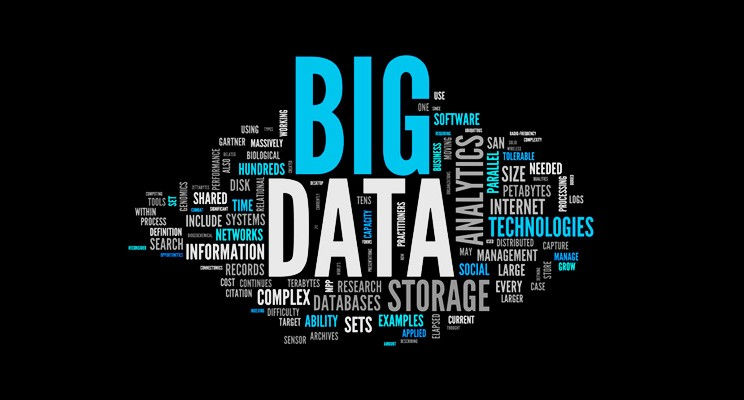It's Time to Expand Your The Science of Data Options
- kaushiklalit117
- Apr 16, 2024
- 4 min read
In today's digitally-driven world, the significance of data science cannot be overstated. From analyzing consumer behavior to predicting market trends, data science plays a pivotal role in driving innovation and decision-making across industries. In this comprehensive guide, we will delve into the fundamentals of data science, explore its applications, discuss the skills required for success in this field, and examine the future trends shaping the landscape of data science.

Understanding the Basics of Data Science
Data science is an interdisciplinary field that utilizes scientific methods, processes, algorithms, and systems to extract knowledge and insights from structured and unstructured data. It encompasses various techniques such as data mining, machine learning, and statistical analysis to uncover patterns, trends, and correlations within datasets.
Definition and Significance of Data Science
At its core, data science involves collecting, processing, analyzing, and interpreting vast amounts of data to facilitate informed decision-making and problem-solving. By harnessing the power of data, organizations can gain valuable insights that drive innovation, enhance efficiency, and optimize performance.
Key Concepts and Components of Data Science
Data science comprises several key concepts and components, including data acquisition, data preprocessing, exploratory data analysis, model building, evaluation, and deployment. Each stage of the data science lifecycle is crucial for extracting actionable insights and deriving meaningful conclusions from data.
The Evolution of Data Science
The field of data science has undergone significant evolution over the years, fueled by advancements in technology, computing power, and data availability. From its humble beginnings to its current state, let's explore the journey of data science and the pivotal moments that have shaped its development.
Historical Background of Data Science
The roots of data science can be traced back to the early days of computer science and statistics. In the mid-20th century, pioneers such as John Tukey and Norbert Wiener laid the groundwork for modern data analysis techniques, paving the way for the emergence of data science as a distinct discipline.
Milestones and Advancements in the Field
Over the decades, data science has witnessed several milestones and breakthroughs that have propelled it into the forefront of technological innovation. From the development of programming languages like R and Python to the rise of big data technologies, each advancement has expanded the capabilities and possibilities of data science.
Applications of Data Science
Data science finds applications in a wide range of industries, from healthcare and finance to retail and transportation. Let's explore some of the key areas where data science is making a significant impact and driving transformative change.
Diverse Industries Benefiting from Data Science
Healthcare: Data science is revolutionizing healthcare by enabling personalized medicine, predictive analytics, and disease detection.
Finance: In the finance industry, data science powers algorithmic trading, risk management, fraud detection, and customer segmentation.
Retail: Retailers leverage data science for demand forecasting, inventory optimization, customer profiling, and recommendation systems.
Transportation: Data science plays a crucial role in optimizing transportation networks, route planning, predictive maintenance, and supply chain management.
Real-world Examples of Data Science Applications
Netflix Recommendation System: Netflix uses data science algorithms to analyze user preferences and recommend personalized content, driving user engagement and retention.
Google's PageRank Algorithm: Google's search engine algorithm, PageRank, relies on data science principles to rank web pages based on their relevance and authority.
Predictive Maintenance in Manufacturing: Manufacturing companies utilize data science techniques to predict equipment failures and schedule maintenance proactively, minimizing downtime and optimizing productivity.
Skills Required for Data Science
To excel in the field of data science, individuals need a combination of technical skills, domain knowledge, and soft skills. Let's explore the essential competencies required for success in this rapidly evolving field.
Technical Skills Needed for Data Analysis
Programming Languages: Proficiency in languages such as Python, R, SQL, and Java is essential for data manipulation, analysis, and visualization.
Statistical Analysis: A solid understanding of statistical methods and techniques is crucial for interpreting data and deriving meaningful insights.
Machine Learning: Knowledge of machine learning algorithms and frameworks is necessary for building predictive models and solving complex problems.
Data Visualization: The ability to create clear and compelling data visualizations using tools like Matplotlib, Seaborn, and Tableau is essential for communicating findings effectively.
Soft Skills Essential for Successful Data Scientists
Critical Thinking: Data scientists must possess strong analytical and problem-solving skills to identify patterns, trends, and correlations within data.
Communication: Effective communication skills are vital for conveying complex technical concepts to non-technical stakeholders and collaborating with interdisciplinary teams.
Curiosity: A curious and inquisitive mindset is essential for exploring data, asking insightful questions, and uncovering hidden insights.
Adaptability: Data science is a dynamic and rapidly evolving field, requiring individuals to adapt to new tools, technologies, and methodologies continuously.
Conclusion:
Data science stands as a cornerstone of modern innovation and decision-making, spanning industries and driving transformative change. From its foundational principles to its practical applications, this article has illuminated the vast landscape of data science, emphasizing its significance in today's digitally driven world. As organizations continue to harness the power of data, the demand for skilled data scientists equipped with both technical expertise and soft skills will only continue to grow. With a solid understanding of the fundamentals and a commitment to lifelong learning, individuals can seize the boundless opportunities afforded by the science of data, shaping the future of innovation and discovery. For those seeking to embark on their journey into the world of data science, finding The Best Data Science Course in Bhopal, Mumbai, Vadodara, Agra, and all cities in India, can serve as a crucial stepping stone toward acquiring the necessary skills and knowledge to thrive in this dynamic field.


